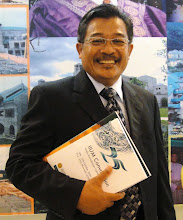Tidak terucap betapa gembira dan syukurnya semua ahli-ahli Kelab Bakti Gunung Keledang diatas perkenan anugerah dan kurniaan daripada DYMM Paduka Seri Sultan Perak, Sultan Azlan Muhibuddin Shah, semalam sempena hari keputeraan Tuanku yang ke-83 kepada tiga orang ahli-ahli kelab yang telah banyak berjasa menaburkan bakti di bumi negeri Perak tercinta.
Ahli-ahli tersebut yang telah menerima pingat kebesaran negeri Perak iaitu Darjah Paduka Mahkota Perak (DPMP) yang membawa gelaran Dato' ialah:
1. Sdr Dr Haji Zakaria bin Abdul Kadir
Pakar neurologi di Hospital Pakar, Ipoh juga seorang dermawan ini adalah Presiden Kelab Keledang dan Presiden Yayasan Keledang pada tahun 2010.
Beliau juga adalah penggerak utama sukan renang di negeri Perak sebagai Presiden Persatuan Renang negeri Perak.
2.Sdr Dr Haji Mohamad bin Abdul Kadir
Pakar radiologi Hospital Fatimah, Ipoh ini adalah Presiden Kelab Keledang dan Yayasan Keledang pada tahun 2001.
Beliau juga kini adalah ahli lembaga pengarah Hospital ArRidzuan, Ipoh dan pengarah beberapa buah syarikat lain.
3. Sdr haji Megat Ahmad Shahrani
Seorang kontraktor Melayu wibawa yang telah memenangi beberapa award antarabangsa atas sifatnya sebagai kontraktor tersohor, Sdr Megat adalah Setiausaha Kehormat Kelab Keledang pada tahun 2010 dan kini menyandang jawatan Naib Presiden kelab.
Beliau juga pernah menjadi Presiden Persatuan Kebajikan Austisme Malaysia (NASOM) selama 9 tahun sebelum melepaskan jawatan berkenaan pada tahun lalu.
Kepada ketiga orang Dato' baru, Sdr Presiden, AJK dan seluruh ahli serta keluarga Kelab Bakti Gunung Keledang / Yayasan Bakti Gunung Keledang merakamkan setinggi tahniah.
Semoga anugerah tersebut dapat menyemarakkan lagi usaha menabur bakti untuk masyarakat.
Menjunjung kasih, Tuanku...














 Top Watch Sites
Top Watch Sites



